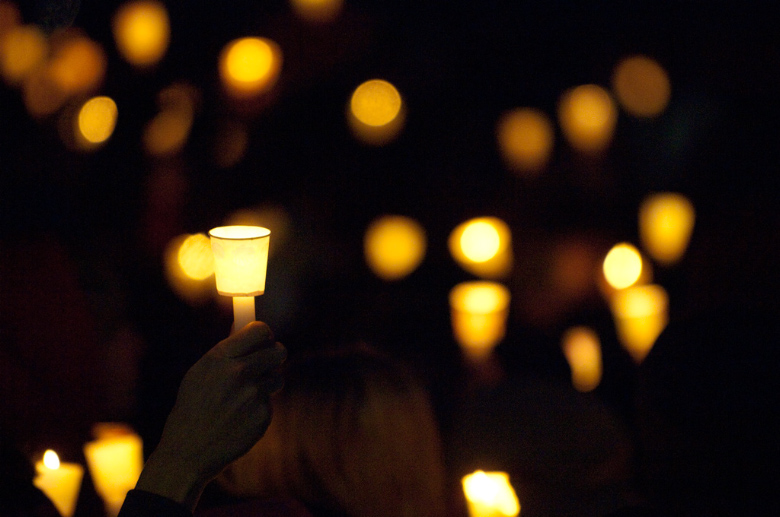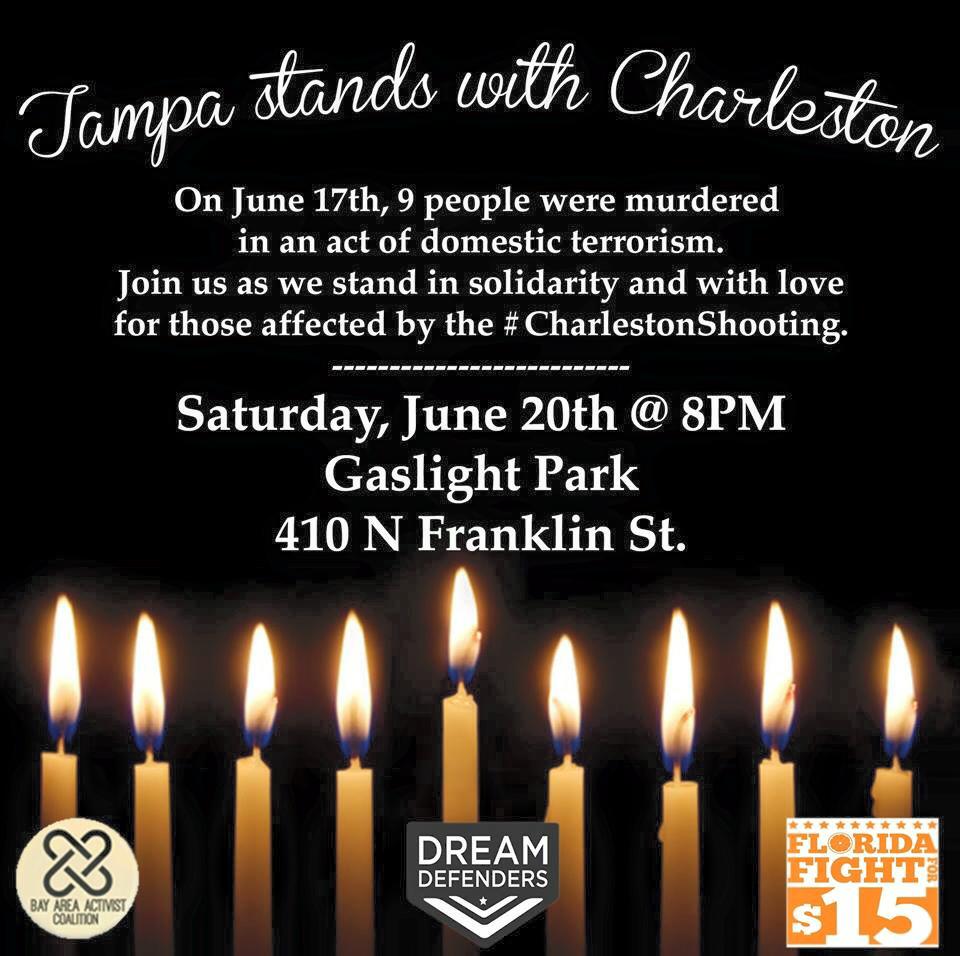A week ago tonight, on the evening of June 17, 2015, a mass shooting took place at Emanuel African Methodist Episcopal Church in downtown in Charleston, SC. The church is one of the United States’ oldest black churches and has a long history of community organizing around issues like civil rights. Nine people were killed, including the senior pastor and state senator, Clementa C. Pinckney. A tenth person was shot and survived, a five year old child who was playing dead.
This happened the day before Juneteenth, which is considered Black Americans’ independence or liberation day. I was asked to speak at the Carter G. Woodson museum and facilitate discussion, but I definitely didn’t feel like celebrating the end of slavery when the deep-seated racism that enabled chattel slavery was apparently alive and well.
I also wasn’t going to attend a candlelight vigil for the Charleston victims in downtown Tampa, but I’m glad I did. My husband and I knew that when we looked back on this past weekend, we would want to say we stood in solidarity with the grieving families of South Carolina who were victims of another historic racist massacre. I didn’t know what to expect. This was my first vigil of this kind, and hopefully last. Who wants to mourn a group of unarmed church-goers who were likely praying for their murderer even as he pulled the trigger in hate?
As soon as I arrived, I was asked to sign my name, take a candle, and share a few words. I wanted to listen first to a few caring citizens. I spoke into a megaphone right after a angry young white woman urged us all to be fearless in our fight for justice. I told the crowd about how I sometimes feel that my people aren’t allowed to express such anger without it being a stereotype. (I wanted to wear my Angela Davis shirt, but was afraid of being labeled a militant.) I explained many of us are almost expected to forgive, while others seek to quickly forget as a coping skill.
As a poet, my number one fear is that my art for social justice doesn’t even matter outside that circle. I’ve been promoting peace and justice for over ten years. I explained that I often feel that I’ve only been preaching to the choir, given the river of blood seems to be rising. This fact alone was sobering.

Afterwards, one teary eyed white lady said she just wanted to know my name. She also said, “I’m sorry” in such a sincere and heartwarming way, it made me cry. I gave her a hug. I said, “I’m sorry, too.” We both wanted to fix things that are often out of our control. Another beautiful young lady of a darker hue told me she was there because she wanted to help raise awareness about what was happening to Haitian immigrants at the hands of Dominicans. The masses of brown and black people across the globe are still struggling to be human, despite my own personal gains and accomplishments in life.
I have two challenges: one is to not become desensitized to the ongoing displacement, death, and destruction of innocent black lives. The other challenge is to stay focused on my friends more than my haters, and see the common vision we share to make this a more just world for all. If there were ever going to be a full-blown race war in 2015, this past weekend would have been a good time for it to happen. But it didn’t. So the vigil was proof that love was winning again.
I give thanks for the invitation to such an unforgettable gathering. Poets and healers need a place to express their sadness and righteous anger freely in the community. We also need words of encouragement. I found all of the above last Saturday night.
When I came home, I sat down and received an email that said: “I was a poetry major at FSU. It’s very refreshing to hear such socially and politically conscious writing. May I publish your poem in my article?”
Obviously my response to the reporter was yes, in hopes it will produce more art for social justice. And so my poem “Was he Black?” was published in Liberation News. Here’s the link: http://www.liberationnews.org/tampa-vigil-for-charleston-victims-decries-racist-terrorism/
Later, I held Steve’s hands in mine and we prayed for peace in this world. We had to believe again that our words mattered. We had to believe again that even our union was a beacon of hope. And so it is. Ase.


Leave A Comment